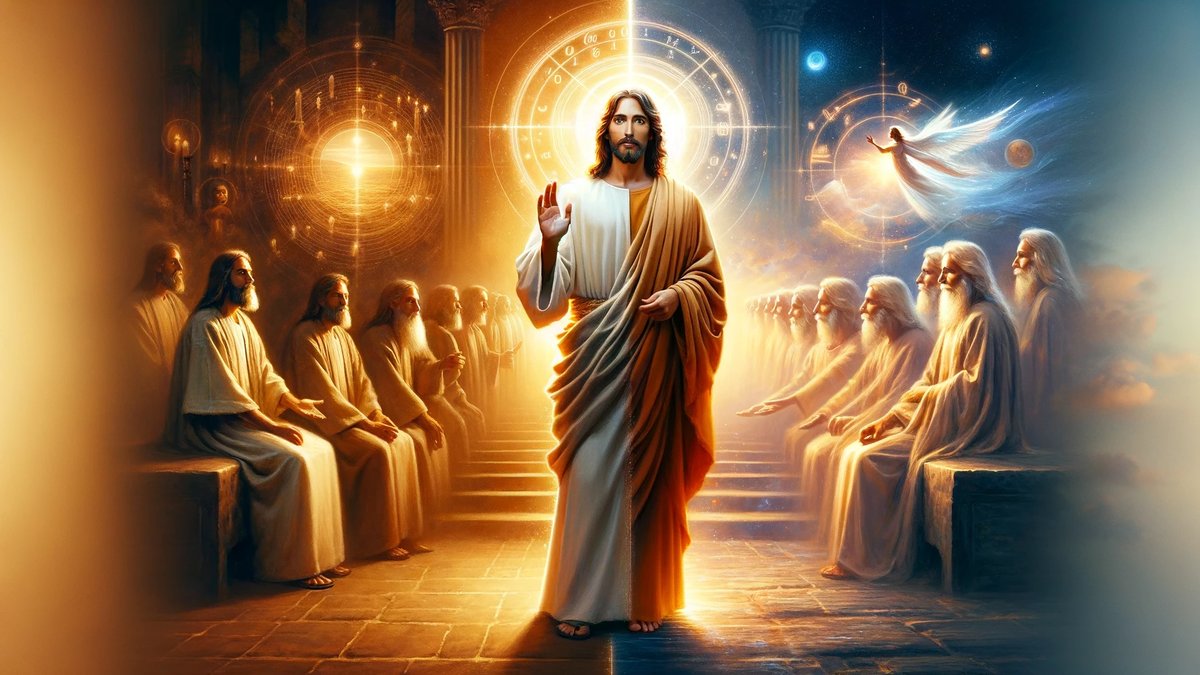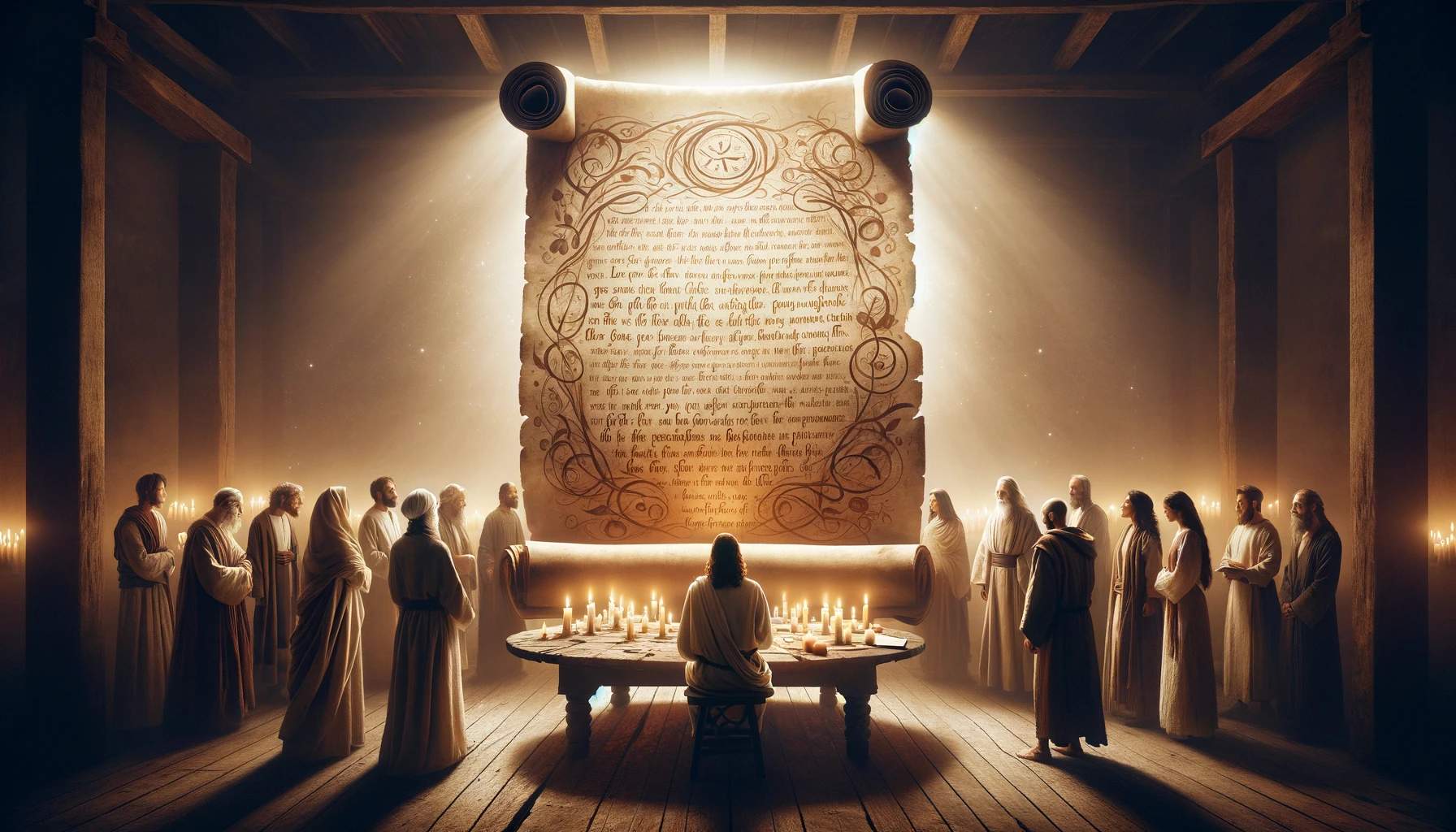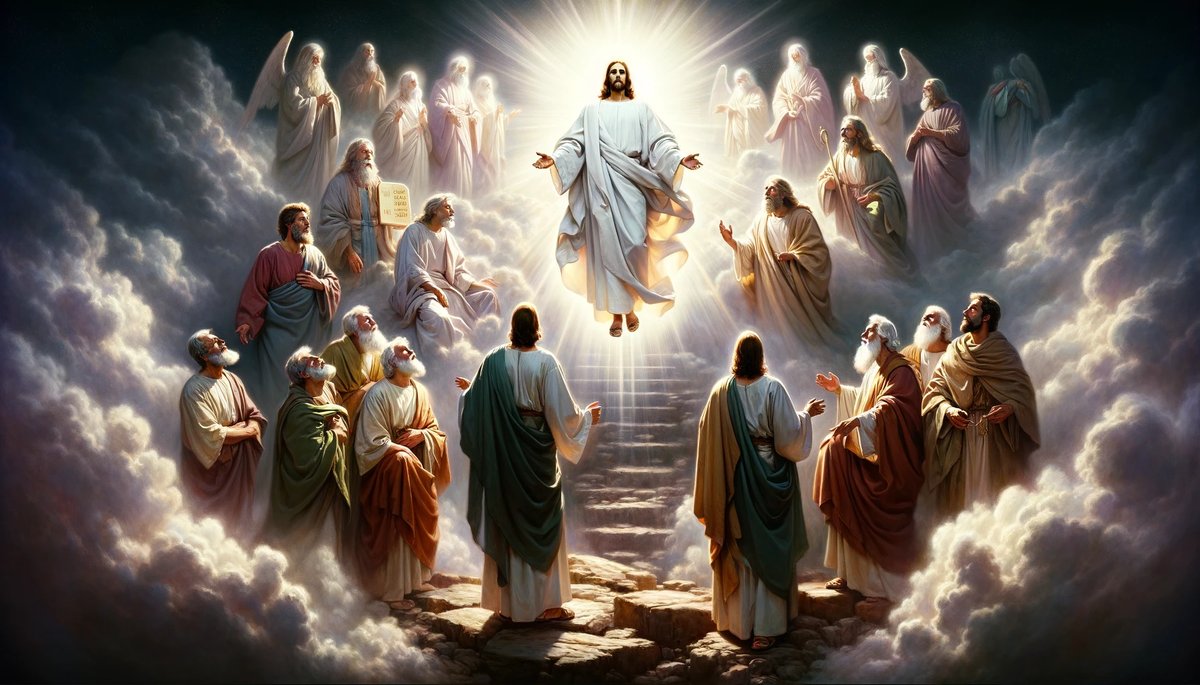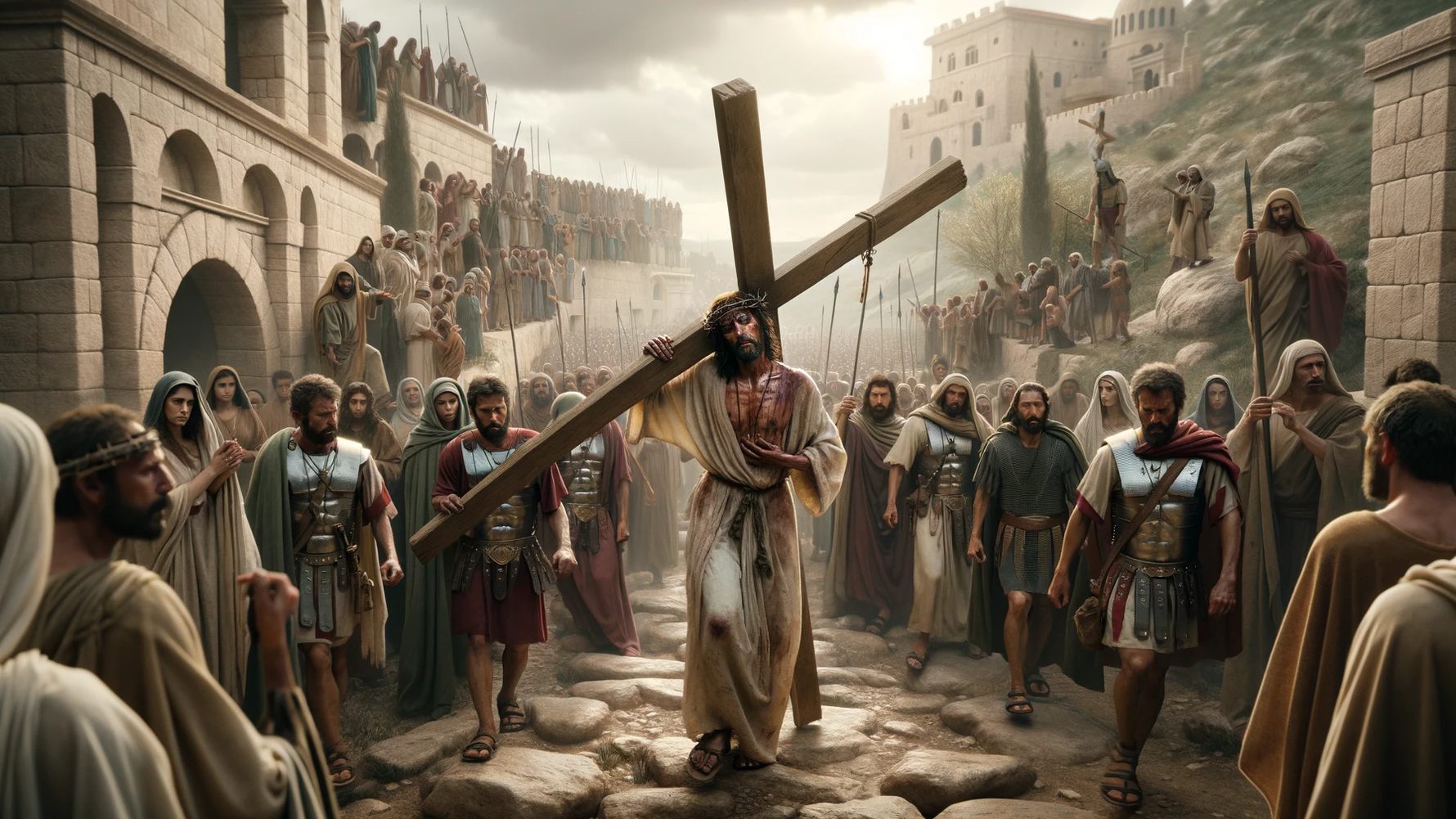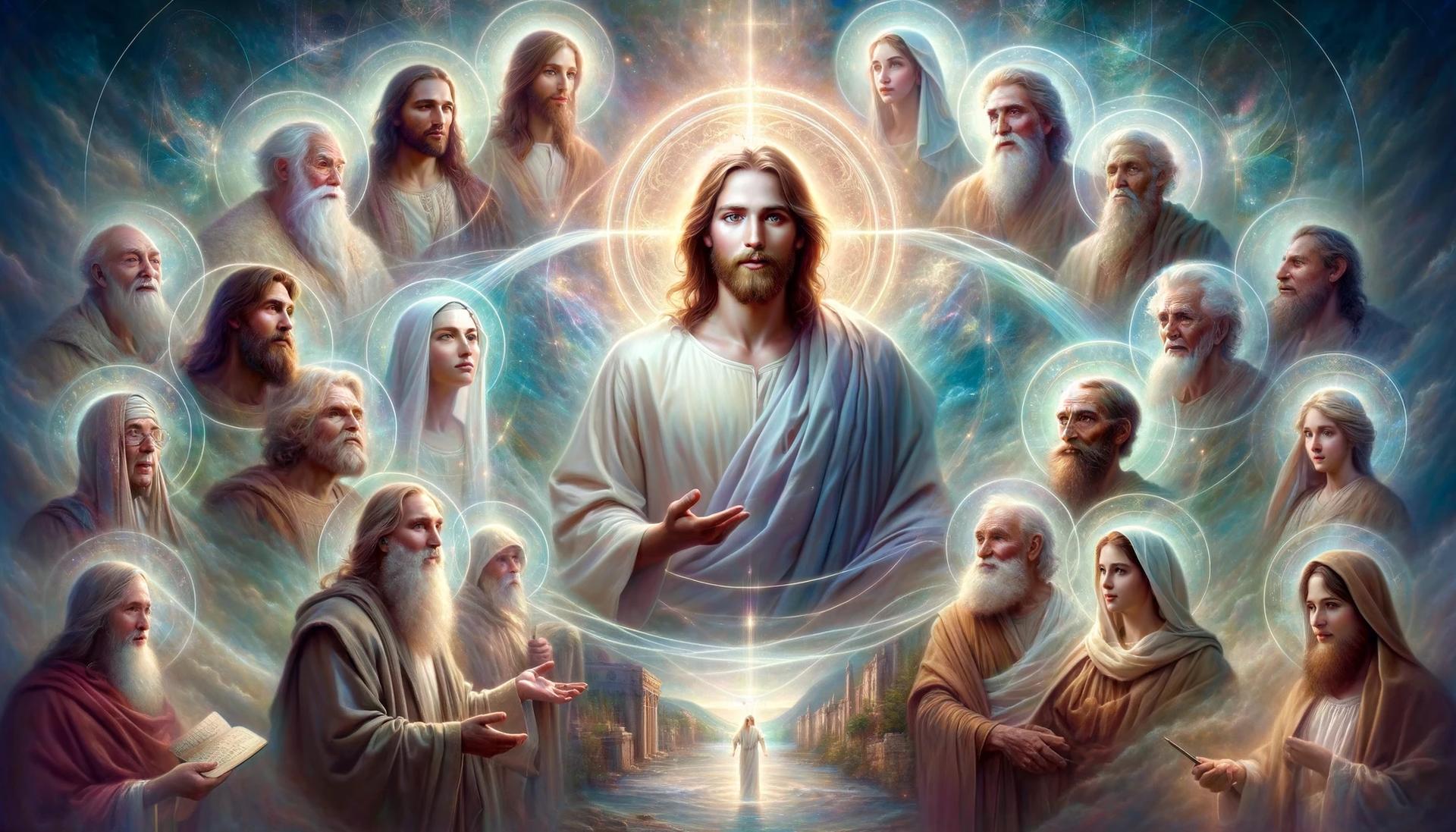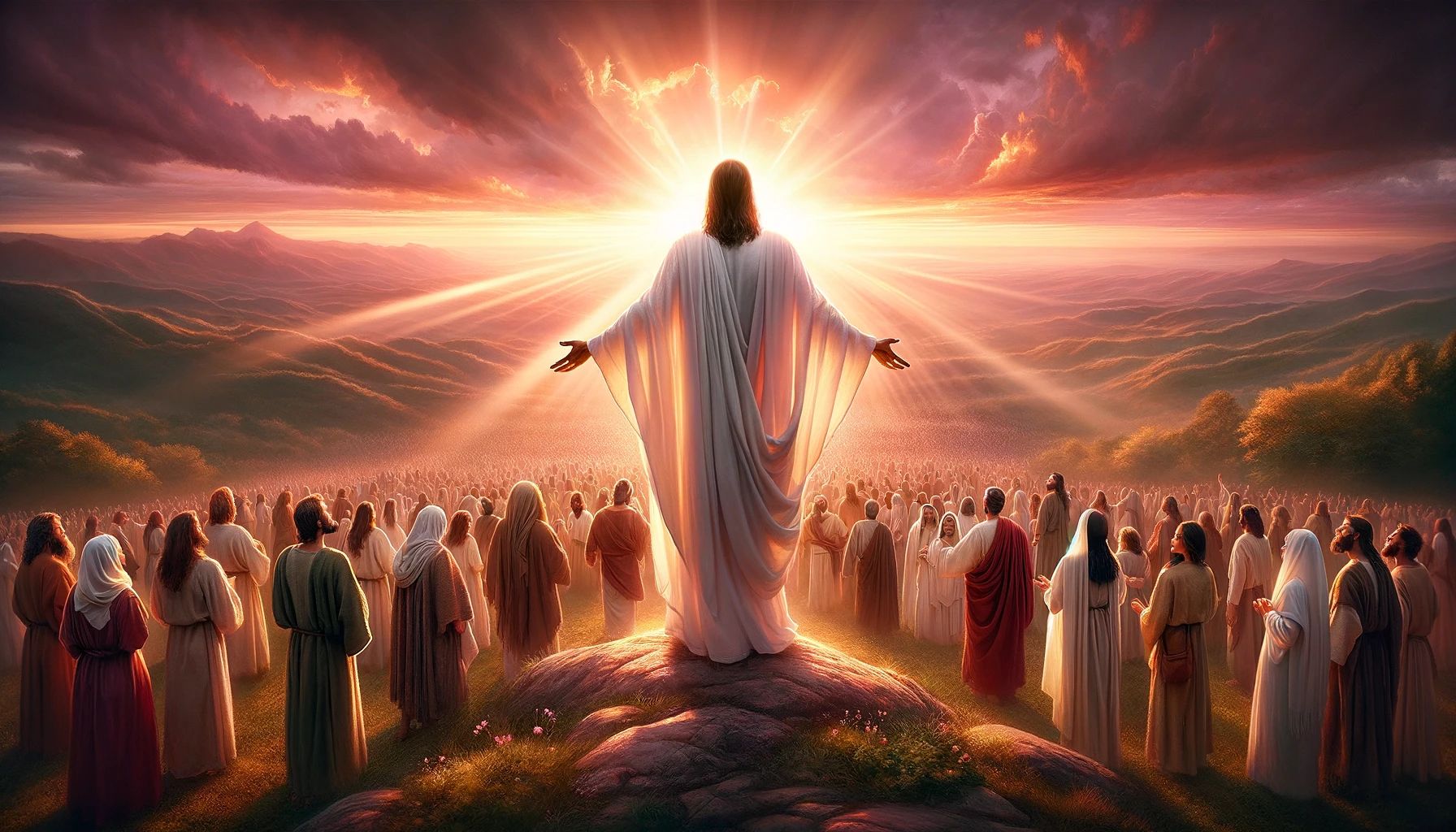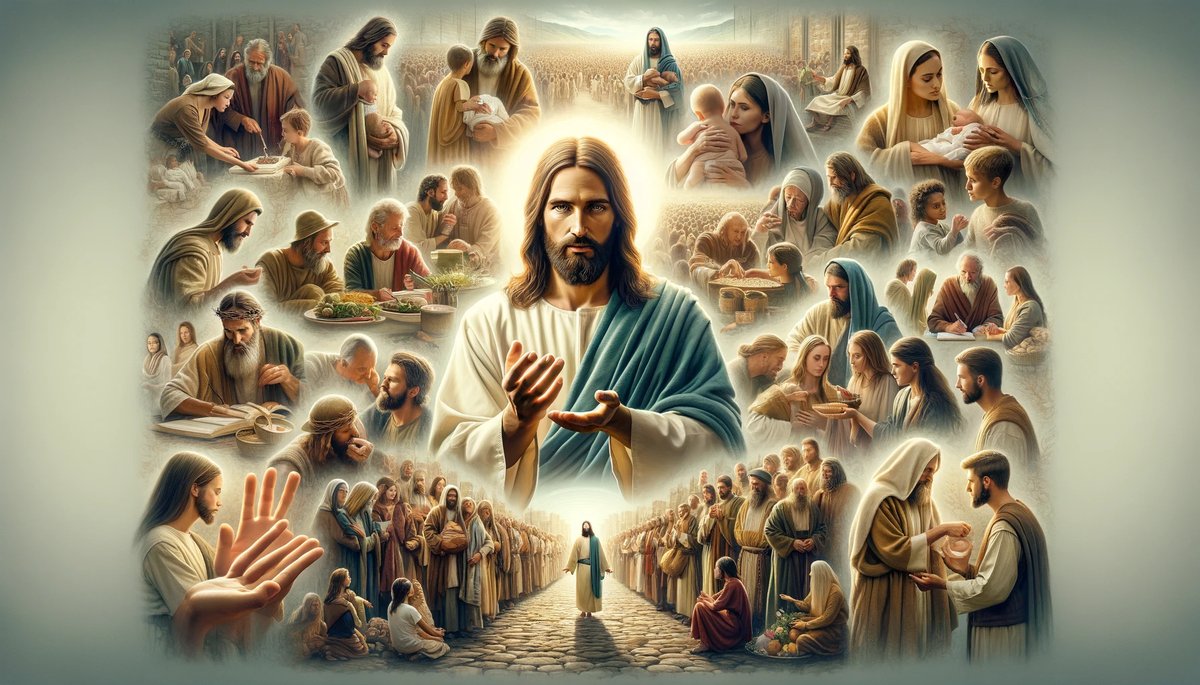Home>Christian Videos>Bible Stories>What Is The Incarnation Of Jesus Christ


Bible Stories
What Is The Incarnation Of Jesus Christ
Published: March 3, 2024
Peter Smith, Editorial Director at Christian.net, combines deep insights into faith, politics, and culture to lead content creation that resonates widely. Awarded for his contributions to religious discourse, he previously headed a major organization for religious communicators, enhancing dialogue on faith's societal impacts.
Learn about the incarnation of Jesus Christ and its significance in the Bible stories. Explore the divine concept of God becoming human in Christian theology.
(Many of the links in this article redirect to a specific reviewed product. Your purchase of these products through affiliate links helps to generate commission for Christian.net, at no extra cost. Learn more)
Table of Contents
Introduction
What is the Incarnation of Jesus Christ? The Incarnation refers to the belief that Jesus Christ, the Son of God, took on human flesh and became a man. This concept is central to Christian theology and has profound implications for the faith. In this article, we will explore the biblical basis for the Incarnation, its theological implications, historical perspectives, and its significance for Christian belief. The Incarnation is a foundational doctrine that has shaped the beliefs and practices of Christians for centuries, and understanding its significance is essential for anyone seeking to comprehend the core of the Christian faith.
The Biblical Basis for the Incarnation
The biblical basis for the Incarnation is rooted in the New Testament, particularly in the Gospels of Matthew, Mark, Luke, and John. These accounts provide the primary source of information about the life, teachings, death, and resurrection of Jesus Christ. The Gospel of John, in particular, emphasizes the divine nature of Jesus, describing Him as the Word who was with God and was God from the beginning. John 1:14 states, "And the Word became flesh and dwelt among us, and we have seen his glory, glory as of the only Son from the Father, full of grace and truth." This verse is a foundational text for the doctrine of the Incarnation, affirming that Jesus, as the Word, took on human form and lived among humanity. Additionally, the Gospels recount the miraculous birth of Jesus to the Virgin Mary, emphasizing the divine origins of His incarnation. The biblical narrative of the Incarnation provides the theological framework for understanding Jesus as both fully divine and fully human, a concept that has profound implications for Christian belief and practice.
- The Gospel of John emphasizes the divine nature of Jesus, describing Him as the Word who was with God and was God from the beginning.
- John 1:14 states, “And the Word became flesh and dwelt among us, and we have seen his glory, glory as of the only Son from the Father, full of grace and truth.”
- The Gospels recount the miraculous birth of Jesus to the Virgin Mary, emphasizing the divine origins of His incarnation.
Theological Implications of the Incarnation
The Incarnation holds profound theological implications for Christian belief. It affirms the unity of divinity and humanity in the person of Jesus Christ, providing a unique bridge between God and humanity. This union is essential for the Christian understanding of salvation, as it is through the Incarnation that God enters into human experience, identifying with human suffering and offering redemption. The Incarnation also reveals the character of God as one who is intimately involved in the human condition, empathizing with human struggles and ultimately providing a path to reconciliation. Furthermore, the Incarnation underscores the value of human embodiment, affirming the goodness of physical existence and the sanctity of human life. This theological perspective has significant implications for Christian ethics and the understanding of the human person as created in the image of God. The Incarnation serves as the foundation for the Christian belief in the resurrection of the body and the hope of eternal life, emphasizing the continuity between the material and spiritual dimensions of human existence. Ultimately, the theological implications of the Incarnation shape the core of Christian doctrine and provide a framework for understanding the relationship between God and humanity.
Historical Perspectives on the Incarnation
-
Early Church Fathers: The early Church Fathers played a crucial role in shaping the historical perspectives on the Incarnation. They grappled with the theological implications of Jesus being both fully divine and fully human, seeking to articulate this mystery in a way that was faithful to the biblical witness. Figures such as Athanasius, Cyril of Alexandria, and Augustine of Hippo contributed to the development of key theological concepts related to the Incarnation, such as the hypostatic union and the communication of idioms. Their writings and debates laid the groundwork for the formulation of the doctrine of the Incarnation as it is understood in Christian tradition.
-
Ecumenical Councils: The early ecumenical councils, particularly the Council of Nicaea in 325 and the Council of Chalcedon in 451, played a significant role in clarifying and affirming the Church's understanding of the Incarnation. These councils addressed theological controversies and affirmed the orthodox belief in the Incarnation as articulated in the Nicene Creed and the Chalcedonian Definition. The decisions of these councils established the parameters for orthodox Christological doctrine and provided a historical framework for understanding the Incarnation within the context of the early Christian church.
-
Medieval Theologians: In the medieval period, theologians such as Thomas Aquinas and Anselm of Canterbury further developed the historical perspectives on the Incarnation. They explored the philosophical and theological dimensions of the Incarnation, seeking to reconcile the mystery of the divine becoming human with the rational inquiry of the scholastic tradition. Their contributions to the understanding of the Incarnation continue to shape historical perspectives on this central Christian doctrine.
-
Reformation and Post-Reformation Thought: The Protestant Reformation and the subsequent developments in post-Reformation thought brought new historical perspectives on the Incarnation. Reformers such as Martin Luther and John Calvin reaffirmed the orthodox understanding of the Incarnation while emphasizing the sufficiency of Christ's work for salvation. The Reformation also gave rise to diverse theological interpretations of the Incarnation within Protestant traditions, contributing to the historical diversity of perspectives on this foundational doctrine.
-
Contemporary Theology: In contemporary theology, scholars continue to engage with historical perspectives on the Incarnation, drawing on the rich tradition of Christian thought while addressing new questions and challenges. The historical perspectives on the Incarnation continue to inform theological reflection and dialogue within the global Christian community, demonstrating the enduring significance of this doctrine for the historical development of Christian belief and practice.
The Significance of the Incarnation for Christian Belief
The significance of the Incarnation for Christian belief is multifaceted and foundational to the Christian faith. It serves as the linchpin of God's redemptive plan for humanity, demonstrating His unfathomable love and commitment to reconciling humanity to Himself. The Incarnation signifies God's willingness to enter into the human experience, to dwell among His creation, and to ultimately offer the gift of salvation through the life, death, and resurrection of Jesus Christ.
The Incarnation also underscores the value of human life and the sanctity of the physical world. By taking on human flesh, Jesus dignified human existence, affirming the goodness of creation and the worth of every individual. This has profound implications for Christian ethics, emphasizing the inherent value of every human being and the call to care for the material world as stewards of God's creation.
Furthermore, the Incarnation provides a unique model for the Christian understanding of God's character. In Jesus, Christians see a God who is intimately involved in the struggles and joys of human life, who understands human frailty, and who offers hope and redemption in the midst of suffering. This understanding of God's empathy and solidarity with humanity shapes the Christian response to the needs of the world, inspiring acts of compassion, justice, and mercy.
The Incarnation also serves as the foundation for the Christian hope of resurrection and eternal life. By taking on human form and experiencing the fullness of human existence, Jesus sanctified the human condition and paved the way for the restoration of all things. The Incarnation assures Christians of the promise of new life, both in the present and in the age to come, offering hope in the face of mortality and the assurance of God's ultimate victory over sin and death.
In summary, the significance of the Incarnation for Christian belief cannot be overstated. It shapes the core of Christian theology, ethics, and hope, providing a profound understanding of God's love, the value of human life, and the promise of redemption. The Incarnation stands as a testament to the depth of God's commitment to His creation and remains central to the Christian proclamation of the gospel to the world.


